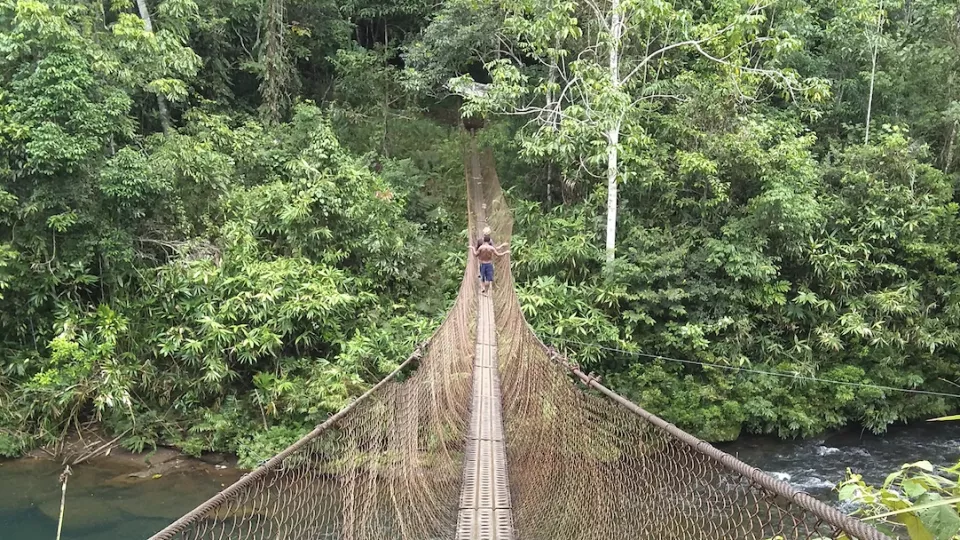Around the world, communities are experiencing non-economic losses due to climate change. These losses are usually defined as loss of life, human health, mobility, territory, biodiversity, ecosystem services, Indigenous and cultural knowledge, cultural heritage, sense of place and social cohesion. Losses occur because of sea level rise, glacier melts, rising temperatures, floods, droughts and intersect with migration patterns, industrialisation, and historical processes (e.g. colonisation) that have resulted in heightened vulnerability to climate change .
Non-economic losses important to document
– It is important to highlight and focus on non-economic losses for many reasons. One is that intangible values, such as cultural heritage and local knowledge, are intrinsic to what makes us human – and as such they need to be recorded before the memory of what is lost fades away. Another is to give voice to vulnerable groups around the world, who might not themselves be able to document these losses. By publishing papers and evidence, we can support them to make a case for compensation or recognition of how these losses affect people across the world, says Guy Jackson, post-doctoral fellow at Lund University Centre for Sustainability Studies, LUCSUS.
Along with his co-authors he has completed an extensive literature review of 100 papers dealing with non-economic loss and damage. The goal? To take stock of what is known and published in regards to climate change driven losses to indigenous and local knowledge and cultural heritage, and how they manifest, and ultimately can be overcome.
– We chose to focus on these two areas of non-economic loss, since for many Indigenous people, their knowledge systems are crucial to preserve traditions of cultural heritage such as oral traditions and practices. Moreover, researchers have observed that loss of local knowledge and cultural heritage can decrease a groups’ ability to deal with climate change, and it can also lead to weakened social cohesion, as people lose touch with traditional ways of life, says Guy Jackson.
Different themes emerge: physical cultural heritage and loss of cultural identity
The review found that the majority of the papers, 39 out of a 100, focused on physical or tangible cultural heritage loss – for example loss of archeological sites and historical buildings in USA or Europe, something the authors attribute to a Eurocentric view of cultural heritage as something physical with material and aesthetic value. Moreover, most studies focused on loss from slow-onset events such as sea level rise and glacier melts as opposed to loss from extreme weather events like cyclones, hurricanes, drought or floods – and loss was often conceptualised as a future problem.
The review also traces other thematic focuses. One of them is loss of Indigenous socioecological systems, which encompass both tangible and intangible cultural heritage. Most of the studies dealing with this topic focused on the Arctic and North America – with examples of how communities experienced loss connected to costal, deltaic and island socioecological systems.
Another emerging focus was loss of intangible cultural heritage, such as changing songs and work patterns due to forced migration, declining species and natural surroundings, whereby pastoralists, elders and farmers can no longer engage in traditions connected to the land. This results, over time, in a loss of sense of self and of cultural identity. As one study highlights, for the Inuit people in Canada, their knowledge and identity come from knowing the land “Inuit people are people of the sea ice. If there is no more sea ice, how can we be people of the sea ice?”
Future steps: more research on loss in Global South needed, as well as management strategies
– The review throws up many important questions and areas for future research. For me, the fact that local climactic changes can so severely impact a community’s sense of cultural identity, and their ability to continue indigenous traditions is particularly overwhelming, especially since organisations such as IPBES have recognised that local knowledge is key in preserving rain forests and other precious ecosystems. But how can they do that if their natural surroundings change at such a pace that their very culture is at risk of being lost?, says Guy Jackson.
Other important take home messages, according to the researchers, include the need to broaden both the focus and the geographical scope of research on loss. Most of the studies focused on cultural heritage as something tangible, and looked at communities in North America, as opposed to South America or Oceana. This is problematic since communities in Small Island States risk absolute loss of their habitat and socioecological systems due to sea level rise. Moreover, a too narrow view of cultural heritage risks overlooking how intangible traditions are an integral part of a community’s way of life, and as important to safeguard as physical sites. Also crucial, say the authors, is to push for more studies on ways to manage and adapt to loss – undertaken in an inter-and transdisciplinary fashion, in collaboration with Indigenous groups.
– We will not be able to completely halt continued loss of Indigenous knowledge or cultural heritage, but we can focus efforts on ways to respond and cope with loss. Part of this effort is about documenting losses that have occurred, and to highlight how intangible cultural values are inextricably tied to physical places; another is to find ways to assist communities by focusing on how they can be part of managing and overcoming loss due to climate change, Guy Jackson concludes.
The study, 'Climate-drive losses to Indigenous and local knowledge', was published in Anthropocene Review. It is authored by Jasmine Pearson, Leuphana University Lüneburg, Guy Jackson, LUCSUS, and Karen McNamara, University of Queensland.
Download the article on sagepub.com (subscription)

